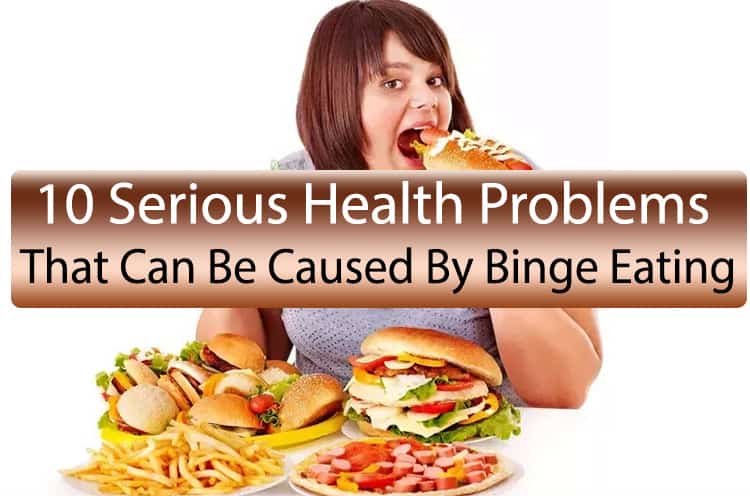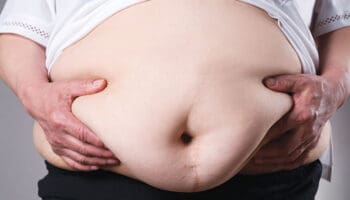Binge-eating disorder is a significant eating condition in which you consume unusually large amounts of food on a regular basis and find it difficult to quit.
On occasion, almost everyone overeats, such as taking seconds or thirds of a festive meal.
Excessive overeating feels out of control and becomes a frequent occurrence for some people, however, crosses the line into binge-eating disorder.
When you have a binge-eating disorder, you may feel ashamed of your eating habits and promise to stop.
However, you are so compelled that you are unable to ignore the desires and continue to binge eat. If you want, you can take a look at the binge eating disorder treatment at Ocean Recovery because this drug rehab center is an expert in handling these problems.

What Is Binge Eating?
Binge eating is when you eat large amounts of food in a short time.
People undergoing this disease consume large quantities of food even when they are not hungry, making them uncomfortable.
If you feel that your eating pattern is out of your control, and you are eating even when you are full, it could mean you have a binge eating disorder.
10 Serious Health Problems Caused By Binge Eating
Binge eating is an eating disorder and a mental health problem that shows varied physical health symptoms upon you.
Yes, you heard us right.
Binge eating disorders can cast ample health problems on you, and some of them are:
Obesity
When you binge eat, you’re likely to gain weight.
Overweight people make up two-thirds of those who have BED. You gain weight by consuming a lot of food in a short amount of time and without exercising to burn off the calories.
Many binge eaters are also self-conscious about their weight.
This can lead to low self-esteem, leading to even more binge eating. Obesity or being overweight can increase your risk of developing long-term health concerns.
Heart Disease
Obesity makes it more difficult for your heart to pump blood to your lungs and body.
High blood pressure, excessive cholesterol, and high blood sugar are all linked to excess fat, especially around the belly button.
All of these factors increase your chances of having a heart attack or stroke.
Eat a balanced diet and exercise on a regular basis. These things help to protect your heart and reduce your risk of heart disease.
Type 2 Diabetes
Studies reveal that binge eaters are more likely to develop type 2 diabetes. Diabetes is a chronic illness that necessitates lifetime treatment.
Binge eating can make it more difficult to control your blood sugar if you have this problem.
Your blood sugar should be checked as often as your doctor recommends.
Ask your doctor to show you how to do this at home if you don’t know the process. Furthermore, inquire as to what your blood sugar target should be to prevent this disease.
Depression
Binge eaters are more likely to suffer from depression and anxiety.
Many people binge-eat to control their emotions. This can lead to guilt, which makes you overeat even more.
When you eat a lot of food even though you are not hungry, it could be an indication that you’re trying to numb your feelings.
You might also feel hopeless or helpless, guilty, as if you’ve lost interest in activities you used to enjoy, sad or empty all of the time, tired, or as if you’ve run out of energy.
Dermatological Effects
Individuals with binge eating disorders are known to consume large amounts of sweets and non-nutritious meals.
Restrictive dieting after a binge may also contribute to an individual’s body’s nutritional needs not being met.
Low-calorie intake and nutrient deficiency due to both dieting and binging can result in dry skin and hair that becomes brittle and falls out.
Binge eating, particularly sweets and dairy goods, can exacerbate facial acne.
Gastrointestinal Effects
Those who binge regularly are more likely to suffer from a variety of gastrointestinal issues.
Individuals may feel uncomfortably full and sick to their stomachs after a binging episode.
Bloating, stomach pain and nausea are all possible side effects.
Binge eating floods a person’s system with a huge number of calories, causing the body to expend a lot, resulting in tiredness and sluggishness.
Endocrine System Effects
Hypertension can be a side effect of binge eating disorder resulting from high blood pressure.
Obesity and diabetes are two common risk factors for high blood pressure, both of which can be present in binge eaters.
However, it’s important to emphasize that some binge eaters have a lean body too.
Not only hypertension, but binge eating can cause hormonal imbalance to such an extent it can cause sleeping problems, depression, panic, anxiety, breathing disorder, etc.
Seizures
Seizures can occur as a result of binge eating.
Seizures occur when the brain experiences an excessive quantity of electrical activity.
Seizures are harmful because they can cause a person to lose consciousness or put them at risk of injury while they are occurring.
The refeeding syndrome is also common in binge eaters, which can cause seizures without giving a prior warning.
Infertility
In order to produce hormones, the female body needs adequate nutrients.
Someone might not be able to conceive without it.
In fact, 7.6% of infertility patients suffer from binge eating disorders.
While some persons with binge eating issues recover and resume normal reproductive function, others with severe binging problems may completely lose their ability to conceive.
Osteoporosis
Osteoporosis is a medical disorder that occurs when bone mass is low.
Binge eating can cause this because the body will not create the growth hormones needed to build bone mass if it is not properly nourished.
This puts some people at a higher risk of fractures and other bone damage.
The repeated act of purging can cause low bone density and a lack of essential nutrients required for a healthy bone mass.
Conclusion
If you’re experiencing any of the symptoms of binge eating disorder, consult a doctor as soon as possible.
Binge-eating disorders can range in duration from brief to recurrent, and if left untreated, they can last for years.
If you’re hesitant to get help, confide in someone you trust about your situation. A friend, loved one, teacher, or religious leader can assist you in taking the first steps toward successful binge-eating disorder treatment.
For further questions, reach us in the comment section.


